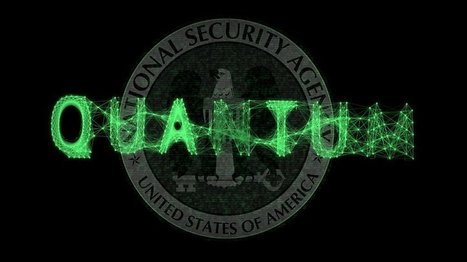Quantum bits are the basic units of information in quantum computing, a new type of computer in which particles like electrons or photons can be utilized to process information, with both “sides” (polarizations) acting as a positive or negative (i.e. the zeros and ones of traditional computer processing) alternatively or at the same time.
According to experts, quantum computers will be able to create breakthroughs in many of the most complicated data processing problems, leading to the development of new medicines, building molecular structures and doing analysis going far beyond the capabilities of today’s binary computers.
The elements of quantum computing have been around for decades, but it’s only in the past few years that a commercial computer that could be called “quantum” has been built by a company called D-Wave. Announced in January, the D-Wave 2000Q can “solve larger problems than was previously possible, with faster performance, providing a big step toward production applications in optimization, cybersecurity, machine learning and sampling.”
IBM recently announced that it had gone even further — and that it expected that by the end of 2017 it would be able to commercialize quantum computing with a 50-qubit processor prototype, as well as provide online access to 20-qubit processors. IBM’s announcement followed the September Microsoft announcement of a new quantum computing programming language and stable topological qubit technology that can be used to scale up the number of qubits.
Taking advantage of the physical “spin” of quantum elements, a quantum computer will be able to process simultaneously the same data in different ways, enabling it to make projections and analyses much more quickly and efficiently than is now possible.
Learn more / En savoir plus / Mehr erfahren:
https://www.scoop.it/t/21st-century-innovative-technologies-and-developments/?&tag=Quantum-Computing
https://www.scoop.it/t/securite-pc-et-internet/?&tag=Quantum



 Your new post is loading...
Your new post is loading...










Learn more / En savoir plus / Mehr erfahren:
https://www.scoop.it/t/21st-century-innovative-technologies-and-developments/?&tag=Quantum-Computing
https://www.scoop.it/t/securite-pc-et-internet/?&tag=Quantum